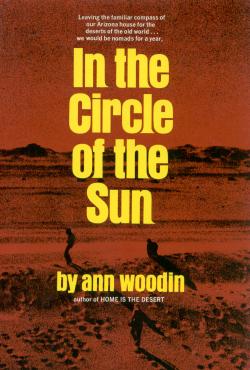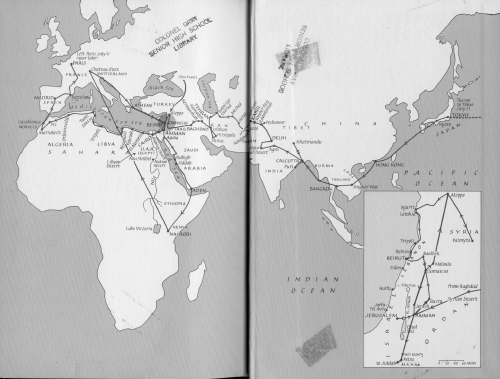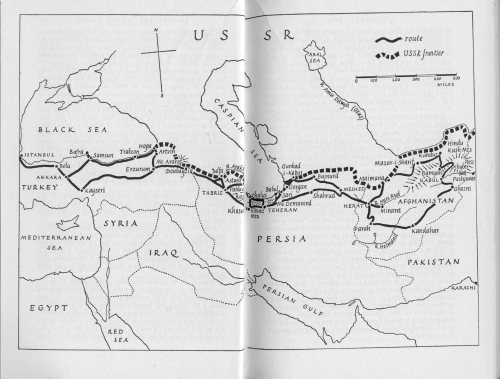I had a interesting telephone call today from a woman I knew more than 10 years ago. She was the subject of a post I wrote on the site last spring: I had interviewed her for a radio piece back then, and I posted the audio of that interview along with my reflections.
She had recently “Googled” herself, and found that said post was the first search result for her name. While originally intrigued, she later found that others — friends, colleagues — had also Googled her name, found the same post, and were alternatively bemused and concerned by the content, in part because they thought it was a contemporary interview, not one conducted 10 years ago.
She called me to ask me to remove the post and the audio, and I complied, reasoning that since (a) I hadn’t originally asked her permission to post the audio, that (b) it was causing her some grief, and that (c) I consider her to own her own words, it was the Right Thing to Do.
At the same time, I cautioned her that once something is on the web, it’s difficult to completely retract: Google will cache it, other sites may archive it. And so on.
I mention this by way of notifying the readership of the absense of the item previously found here, and also to prompt some discussion about the greater issues at play here.
For example, who owns a radio interview? If I was interviewed on the CBC this morning, and they decided to replay my interview in 10 years, would they respond to a request from me to not do so?
Or, let’s say I write a masters thesis, and take a point of view that, 5 years later, I have denounced, and I want to remove my thesis from the university library? Should I be able to?
Or, is it okay to simply write about people without their permission, considering that doing so will effect how they’re seen by the rest of the world (friends, family, potential employers, legal adversaries, etc.) through the eyes of Google. My experience is that if I write about someone at all on this website, if they are not otherwise engaged in Internet work, they’ll likely appear high up on the Google search results for their name. Do we need new rules to deal with the power that this affords me?
Or, if I decided that I wanted to go and get a job with Aliant, and decided to improve my chances by removing all of the posts here that have been critical of that company, is that okay? Do I have any obligation to anyone to not do that?
I’d be interested in others’ thoughts.
Here’s some essential preparatory material for tonight’s big Barn Dance at Robert and Robin’s hacienda.
It also wouldn’t hurt to read up on J. Walter Jones, former owner of their tract.
And remember, nothing could make me happier than if a spontaneous game of charades were to break out.
It occured to me that my computer already “knows” whether I’m in the office or not because my iChat status (aka my AOL Instant Messenger/AIM status, as they use the same IM network) is automatically set to “Away” if I’m idle, and “Available” when I return.
As such, shouldn’t my voicemail be able to reflect this — i.e. not bother ringing my phone if I’m not in the office?
Here’s how I achieved this using Asterisk and an AGI script written in PHP.
First, I needed some code to grab my AIM status. The easiest way to do this is using cURL (note, you’ll have to have cURL compiled into your PHP; see this page on the PHP site for details).
I use cURL to connect to the URL that is otherwise used to display graphical “I’m online” messages on users’ websites; because I’m not actually displaying graphics, just grabbing the status, I can use the arbitrary strings ON and OFF:
$url = “http://big.oscar.aol.com/screenname?on_url=ON&off_url=OFF”; $ch = curl_init(); curl_setopt($ch, CURLOPT_URL,$url); curl_setopt($ch, CURLOPT_RETURNTRANSFER,1); curl_setopt($ch, CURLOPT_TIMEOUT, 4); $result = curl_exec($ch);
Executing this (substituting your actual AIM/iChat screen name for ‘screenname’) will result in the variable $result being set to either “ IMG SRC=ON” (with the leading space) or “ IMG SRC=OFF”. You can then react accordingly in the rest of your AGI script. For example:
if ($result == ” IMG SRC=ON”) { print “EXEC Playback TryingPeterNow\n”; print “EXEC Dial SIP/100\|20\n”; print “EXEC Playback PeterIsNotHere\n”; print “EXEC Voicemail 100\n”; print “EXEC Hangup\n”; } else { print “EXEC Playback PeterIsNotHere\n”; print “EXEC Voicemail 100\n”; print “EXEC Hangup\n”; }
This code plays a message like “I’m trying Peter now” if my AIM status is “ON”, and rings my SIP extension, sending to voicemail if I don’t pick up in 20 seconds. I’ve my AIM status is “OFF,” then I say something like “Peter’s not here” and send directly to voicemail.
I don’t have a lot of money to invest, but we’ve got some RRSPs, and the company has a little money from the sale of digitalisland.com several years ago. My accountant has just suggested meeting with an “investment advisor” to discuss where this money sits. In getting back to him, I tried to express my investment philsophy; here’s what I told him:
I have no interest in investments that are stock market-related, so mutual funds and stocks are out. I don’t know enough about bonds to understand what I’d be investing in and what the risks are, but I’m open to learning. As you know, the Reinvented Inc. investments and my existing RRSP are both in Metro Credit Union GICs at present. I’m comfortable with them there, but I understand that I’m earning less interest there than I would otherwise; if there are other vehicles that would share about the same level of risk, and would also involve investing in my own community, I’m open. That said, I’m not interested in spending a lot of time on this, and I’m generally averse not only to risk, but to investment advisors.
I say this here in public only to declare that it’s possible to live a good and happy live without having anything to do with the stock market, which I consider to be inherently evil.
I’m probably more on the “needlessly stupid” side of the fence on this, of course. But I do have the benefit of having had to expend exactly no effort thinking about investing for the past 10 years. As such, I didn’t profit from the bubbles, but nor did I stress out over the crashes.
I think it’s a good idea, on HTML forms, to focus the cursor on the first field on the form. This means users won’t have to click in the field before starting to fill in the form.
I think it’s a bad idea to have the cursor automatically jump from section to section of multi-part fields, like area code and telephone number. While this might seem like “doing the user a favour,” it’s disconcerting, and because we’re all used to using TAB to jump from field to field, we’re more likely to jump one field too far. It also causes problems with making corrections.
Air Canada is the worst offender here: their prompt for a 3-part Aeroplan number is programmed to automatically jump from part to part as it’s entered.
 In the late 1960s, Ann Woodin and her family set off to explore the deserts of Asia and Africa in a convoy of VW Microbus and Land Rover. In all, their party included Woodin and her husband, their four sons (aged eleven through sixteen), and three friends of the family. Their nominal route was “Calcutta to Casablanca,” and their interest in deserts appears to have stemmed from their work and life in Arizona.
In the late 1960s, Ann Woodin and her family set off to explore the deserts of Asia and Africa in a convoy of VW Microbus and Land Rover. In all, their party included Woodin and her husband, their four sons (aged eleven through sixteen), and three friends of the family. Their nominal route was “Calcutta to Casablanca,” and their interest in deserts appears to have stemmed from their work and life in Arizona.
Despite my strong interest in long driving expeditions, I couldn’t quite bring myself to read this book all the way through. There were two main reasons for this, both stylistic.
First, Woodin is an overly self-reflective writer, and the book is filled with passages like this one from the closing chapter:
If I am unconscious of my own inner being, can I perceive what is and speak out of that with a true voice? Unaware, I cannot live things out in flesh and blood, and I will have to steal images from other eyes and talk in borrowed voice. In the darkness of an unrealized spirit, I will continue being confused, fearful, grasping.
One can only take so much of that until it feels like being pummelled to death by words.
More frustrating still is Woodin’s style for relating the journey: rather than an integrated, meaningful story of a long voyage, what we get is a rather disconnected series of vignettes. One day they’re in Cambodia, the next day in Bangkok, and there’s no suggestion as to how they got from one place to the other. To add to this confusion, each dated sub-chapter is titled for the night’s destination rather than for the subject of the day’s activity, which makes it difficult to tie together what’s already disconnected to begin with.
The expedition began in Tokyo, and headed west from there to Hong Kong, Cambodia, Bangkok and Calcutta by air, and then from Calcutta west overland:
Our last day in Calcutta is ending. The boys are listening to Indian classical music which sounds, in parts, like rock and roll. Bill and the Latifs are examining maps. And I am thinking of our vehicle parked in the driveway. We have christened it the Sand Fish in hopes that it will prove as able to survive in the desert as the lizard of that name. The new cupboards have been filled with food, the water tank with twenty gallons of boiled water, the gas tank with gas at a dollar per gallon.
From Calcutta, they travelled to Agra, Delhi, Kabul, Meshed, Baghdad, Amman, Jidda, Aden and, Nairobi. After a break of two months in Switzerland (reached by air), they went on to Athens, Cairo, and through Libya to Algeria where their desert journey ended at Casablanca.

Over the course of the journey various members of the party drop in and out — certain children go off to study, family friends leave and rejoin, and so on. The author is the only constant, for she is with the journey from beginning to end.
Despite the stylistic problems, which make an enjoyable read through of the book next to impossible for all but the spiritually attuned, the notion of picking up a large family, including 4 teenagers, and heading off across Asia, is a brave and intriguing one, and perhaps it’s the possibility of doing so, rather than the details of the voyage itself, which is where the real value of this book lies.
In the Circle of the Sun was a gift from my friend Gary the bookseller, in December of 2002. It was formerly resident in the Colonel Gray Senior High School Library in Charlottetown, where it appears never to have been checked out. It is out of print, but used copies are available from Amazon.com.
From today’s National Post comes the following clip, from a story titled “Maid to order” by Deirdre McMurdy:

Is this true? Maybe Catherine and I are missing out on something!
I’ve begun a series of reviews of books about expeditions over in the Reinvented World weblog. I’ve started off with Offbeat in Asia and will quickly follow with others.
 In 1958, Michael Alexander and his partner Diana (pictured here) journeyed from Istanbul, across Turkey and Iran and into Afghanistan. Alexander published the tale of their journey in the book Offbeat in Asia: An Excursion in 1960.
In 1958, Michael Alexander and his partner Diana (pictured here) journeyed from Istanbul, across Turkey and Iran and into Afghanistan. Alexander published the tale of their journey in the book Offbeat in Asia: An Excursion in 1960.
Although there is precious little practical information in the book — none of the detailed information about motivations, vehicle, sponsors, gear, etc. that one finds in other expedition accounts — the nature of the tale suggests they took a rather casual approach to the trip, viewing it more as a “jaunt” than an “expedition.”
Their vehicle was a 1951 Land Rover, purchased “in the upper reaches of the King’s Road for £265,” and appears to have been quite reliable but for the need to repair tires at regular intervals (in contrast to the Oxford-Cambridge Expedition Land Rover which, if memory serves, used only one set from London to Burma).
The book starts where the expedition does, at the Istanbul Hilton. Alexander calls this “the best hotel in Europe,” and the first chapter goes on at some length about its wonders:
All this and more inside was heady stuff to two ingenuous travellers just in from the dusty. bumpy road through Yugoslavia and Salonika, an eight-day journey from England that might have been accomplished in six had we not lingered by the blue Agean. Finally installed at the Hilton we were tempted to surrender body and soul to so comfortable a cathedral of materialism…”
From Istanbul, they travel to Ankara, Tabriz, Teheran, Babul, Meshed, Herat, Kabul, Bamyan, then back to Herat, through Teheran, and back to Istanbul:

The tale finishes as it started, at the Istanbul Hilton, and closes with a note about the trusty Land Rover:
The only thing that failed to recover was the car, owing to its being driven from Greece with a holed radiator and a broken fan. It was a total wreck by the time it reached Dover, where it was ignominiously pushed off the boat and sold to a scrap dealer for £50.
While perhaps not as useful as other books for those looking for practical expeditioning advice, the book’s casual, breezy style does allow a interesting look at everyday Iran and Afghanistan; on arrival in Kabul, for example:
The social life of the town seemed to be centred on, or rather in, the rapidly drying-up river that ran through the middle: it was lido, lavatory and laundry — women washed, boys bathed, animals drank and performed their natural functions in its festering shadows. Behind was the bazaar, hiding as if ashamed behind the more pretentious buildings that line the three main streets.
I purchased Offbeat in Asia used at The Travel Bookshop in London in May of 2003. It is out of print, but copies are readily available from abebooks.com.
 I am
I am